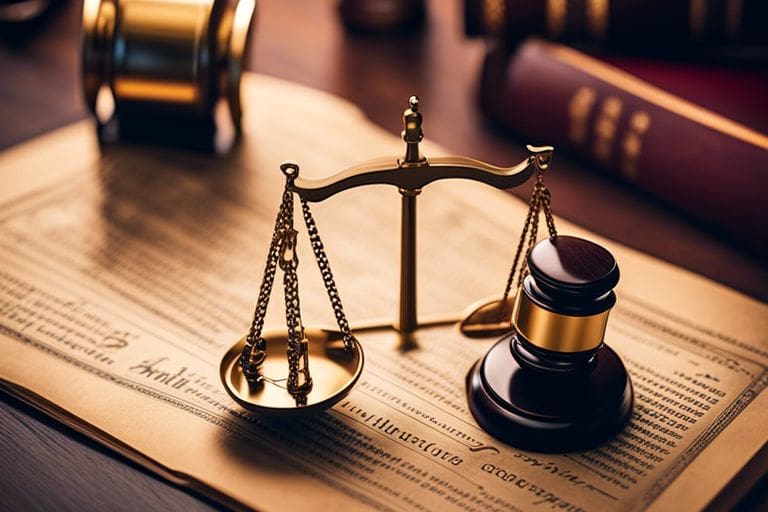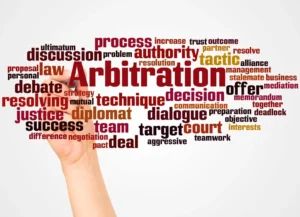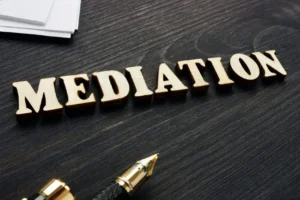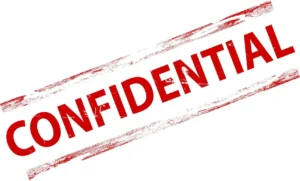Constitutional law forms the backbone of a nation’s legal system, defining the framework of government and enumerating the fundamental rights and freedoms of its citizens. This body of law is essential for maintaining the balance of power between the various branches of government and ensuring that individual rights are protected against infringement by the state. Understanding your rights and legal protections under constitutional law is crucial for every citizen, as it empowers you to exercise your freedoms and seek justice when those rights are violated.
The Foundation of Constitutional Law
The Constitution is the supreme law of the land, laying down the principles by which a country is governed. It establishes the structure of government, delineates the powers and duties of government officials, and guarantees certain rights to the people. In the United States, the Constitution includes the original document, the Bill of Rights, and subsequent amendments that have expanded and clarified citizens’ rights.
The Bill of Rights
The first ten amendments to the U.S. Constitution, known collectively as the Bill of Rights, were adopted to ensure that certain fundamental rights were explicitly protected. These rights include freedoms such as speech, religion, and the press, as well as protections against governmental abuses such as unreasonable searches and seizures, and cruel and unusual punishment. Each of these amendments plays a critical role in safeguarding individual liberties.
Subsequent Amendments
Over time, additional amendments have been added to address evolving societal needs and issues. For instance, the Thirteenth Amendment abolished slavery, the Fourteenth Amendment provided equal protection under the law, and the Nineteenth Amendment granted women the right to vote. These amendments reflect the dynamic nature of constitutional law and its ability to adapt to changing conditions.
Your Rights Under Constitutional Law
Understanding your rights under constitutional law is essential for recognizing when those rights are being infringed upon and knowing how to seek redress. Here are some key areas of constitutional rights:
Freedom of Speech and Expression
The First Amendment guarantees the right to free speech, allowing individuals to express themselves without fear of government censorship or retaliation. This right is not absolute, however, and there are restrictions on speech that incites violence, constitutes hate speech, or involves obscenity. Nevertheless, the protection of free speech is a cornerstone of a democratic society, fostering open dialogue and the exchange of ideas.
Right to Privacy
The right to privacy is derived from several amendments in the Constitution, including the Fourth Amendment, which protects against unreasonable searches and seizures, and the Fourteenth Amendment, which guarantees due process. This right encompasses various aspects of personal autonomy, such as the right to make decisions about one’s body and personal relationships without undue government interference.
Due Process and Equal Protection
The Fifth and Fourteenth Amendments provide crucial protections against arbitrary government actions. The due process clauses ensure that individuals cannot be deprived of life, liberty, or property without fair legal procedures. The equal protection clause mandates that individuals in similar situations be treated equally under the law, prohibiting discrimination based on race, gender, or other protected characteristics.
Case Studies and Examples
Examining real-life cases can provide deeper insights into how constitutional rights are upheld or challenged. One landmark case is Brown v. Board of Education, where the Supreme Court declared state laws establishing separate public schools for black and white students unconstitutional. This case was pivotal in the fight against racial segregation and underscored the importance of equal protection under the law.
Another significant case is Roe v. Wade, which recognized a woman’s constitutional right to privacy extending to her decision to have an abortion. This decision has been the subject of ongoing debate and legal challenges, illustrating the evolving nature of constitutional interpretation.
Comparative Analysis
Comparing constitutional protections across different countries can highlight the strengths and limitations of various legal systems. For example, while the U.S. Constitution emphasizes individual freedoms, the Canadian Charter of Rights and Freedoms provides a broader scope of social and economic rights. Understanding these differences can offer a more comprehensive perspective on how constitutional law functions globally.
Legal Consequences
Violations of constitutional rights can lead to significant legal consequences. For instance, evidence obtained through an unconstitutional search may be excluded from trial under the exclusionary rule, a principle established to deter police misconduct. Similarly, laws that discriminate against certain groups can be struck down by courts, ensuring that legislation aligns with constitutional principles.
Step-by-Step Guide with Visuals
Navigating constitutional rights and legal protections can be complex. A step-by-step guide can simplify this process:
- Identify the Right: Determine which constitutional right is at issue (e.g., freedom of speech, right to privacy).
- Understand the Scope: Research how courts have interpreted this right and any limitations that apply.
- Seek Legal Advice: Consult with an attorney who specializes in constitutional law to understand your options.
- File a Claim: If your rights have been violated, you may need to file a legal claim or lawsuit to seek redress.
- Court Proceedings: Prepare for court proceedings, which may involve gathering evidence, presenting arguments, and potentially appealing decisions.
Visual aids, such as flowcharts or infographics, can further elucidate these steps, making the process more accessible to the general public.
Technology and Tools
Advancements in technology have significantly impacted the enforcement and protection of constitutional rights. Digital tools can aid in documenting and reporting rights violations, such as mobile apps that allow users to record interactions with law enforcement. Additionally, online legal resources and databases can provide valuable information on constitutional law and precedents.
Interactive Elements
Incorporating interactive elements, such as quizzes or self-assessment tools, can enhance understanding and engagement. For instance, an interactive quiz on constitutional rights can help users test their knowledge and identify areas where they may need further education.
FAQ Section
Q: What is the significance of the First Amendment?
A: The First Amendment is crucial because it protects fundamental freedoms such as speech, religion, and the press, which are essential for a functioning democracy.
Q: How can I protect my privacy rights?
A: You can protect your privacy rights by being aware of the legal protections available, such as those against unreasonable searches, and by seeking legal recourse if those rights are violated.
Q: What should I do if I believe my constitutional rights have been violated?
A: If you believe your rights have been violated, consult with an attorney specializing in constitutional law to understand your options and potentially file a legal claim.
Legislative Changes and Trends
Constitutional law is continually evolving, with legislative changes and judicial interpretations shaping the landscape. Recent trends include increased scrutiny of surveillance practices and efforts to balance national security with individual privacy rights. Understanding these trends is crucial for staying informed about your legal protections.
Ethical Considerations
Constitutional law raises numerous ethical considerations, particularly in balancing individual rights with societal needs. For instance, debates over freedom of speech often involve weighing the right to express controversial opinions against the potential harm caused by hate speech. Navigating these ethical dilemmas requires careful consideration of both legal principles and moral values.
Finding the Right Attorney
When dealing with constitutional law issues, it is essential to find an attorney who specializes in this area. Attorneys.Media is a valuable resource for locating qualified legal professionals. Here’s how to find the right attorney:
Research and Referrals
Start by researching attorneys who specialize in constitutional law. Look for those with experience in cases similar to yours. Referrals from friends, family, or other attorneys can also be valuable.
Credentials and Experience
Examine the credentials and experience of potential attorneys. Check their educational background, years of practice, and any relevant certifications. Experience in constitutional law cases, particularly those involving your specific issue, is crucial.
Consultation and Communication
Schedule consultations with a few attorneys to discuss your case. Assess their communication style, willingness to answer questions, and overall approach. Choose an attorney who makes you feel comfortable and confident in their ability to represent you.
Conclusion
Understanding your rights and legal protections under constitutional law is essential for safeguarding your freedoms and seeking justice. Whether it’s the right to free speech, privacy, or equal protection, these rights are foundational to a democratic society. By staying informed and seeking the right legal counsel, you can ensure that your constitutional rights are respected and upheld.
Finding the Right Attorney for Constitutional Law Issues
When facing issues related to constitutional law, it is imperative to seek the expertise of an attorney who specializes in this complex and nuanced area of the legal system. Constitutional law attorneys possess the knowledge and skills necessary to navigate the intricacies of cases involving individual rights, government powers, and fundamental freedoms. Here’s a detailed guide on the type of attorney you need and how to find them on Attorneys.Media.
Identifying the Right Attorney
Constitutional Law Attorneys are specialized legal professionals who focus on cases that involve interpreting and applying the principles set forth in the Constitution. These attorneys handle a variety of issues, including free speech, religious freedoms, privacy rights, equal protection under the law, and due process. They are adept at challenging government actions that may infringe upon constitutional rights and are skilled in litigating cases that can set important legal precedents.
When seeking a constitutional law attorney, it is crucial to find someone with extensive experience in this field. Look for attorneys who have a proven track record of handling cases similar to yours, as well as those who have a deep understanding of both state and federal constitutional provisions. Their experience in courtroom litigation and familiarity with constitutional arguments can significantly influence the outcome of your case.
Using Attorneys.Media to Find a Constitutional Law Attorney
Attorneys.Media is a comprehensive online platform designed to help individuals find qualified attorneys for their specific legal needs. Here’s how you can use this resource to locate a constitutional law attorney:
- Search Functionality: Start by using the search functionality on Attorneys.Media. Enter keywords such as “constitutional law attorney” or “civil rights lawyer” along with your location. The platform will generate a list of attorneys who specialize in constitutional law and practice in your area.
- Detailed Profiles: Each attorney listed on Attorneys.Media has a detailed profile that includes their educational background, years of experience, areas of specialization, and client reviews. Take the time to review these profiles to gauge the attorney’s expertise and suitability for your case. Look for attorneys who have successfully handled cases involving issues similar to yours.
- Client Reviews and Ratings: One of the most valuable features of Attorneys.Media is the inclusion of client reviews and ratings. Reading feedback from previous clients can provide insight into an attorney’s professionalism, communication skills, and effectiveness in handling constitutional law cases. Positive reviews and high ratings can help you identify attorneys who are highly regarded in their field.
Making the Final Decision
After narrowing down your options, it’s essential to schedule consultations with a few selected attorneys. During these consultations, discuss the specifics of your case and ask about their experience with constitutional law issues. Pay attention to their communication style and willingness to answer your questions thoroughly. A good constitutional law attorney should not only be knowledgeable but also approachable and transparent about their legal strategy and potential outcomes.
Additionally, inquire about their fee structure and any potential additional costs. Understanding the financial aspect of hiring an attorney is crucial to avoid any unexpected expenses later on. Once you feel confident in your choice, you can proceed with hiring the attorney who best fits your needs and can effectively advocate for your constitutional rights.
In summary, finding the right attorney for constitutional law issues involves identifying a specialized professional with the necessary expertise and experience. Attorneys.Media offers a robust platform to facilitate this search, providing detailed profiles, client reviews, and an easy-to-use search function. By utilizing these resources and conducting thorough consultations, you can secure the legal representation you need to protect your constitutional rights.
Reference URLs
- Constitutional Law Center: Understanding Your Rights
https://www.constitutionallawcenter.com/understanding-your-rights - Civil Rights and Constitutional Law: What You Need to Know
https://www.aclu.org/civil-rights-and-constitutional-law - Legal Protections Under the Constitution
https://www.nolo.com/legal-protections-under-the-constitution - Your Rights Under Constitutional Law
https://www.law.cornell.edu/constitution - Constitutional Law and Legal Protections
https://www.justia.com/constitutional-law




















